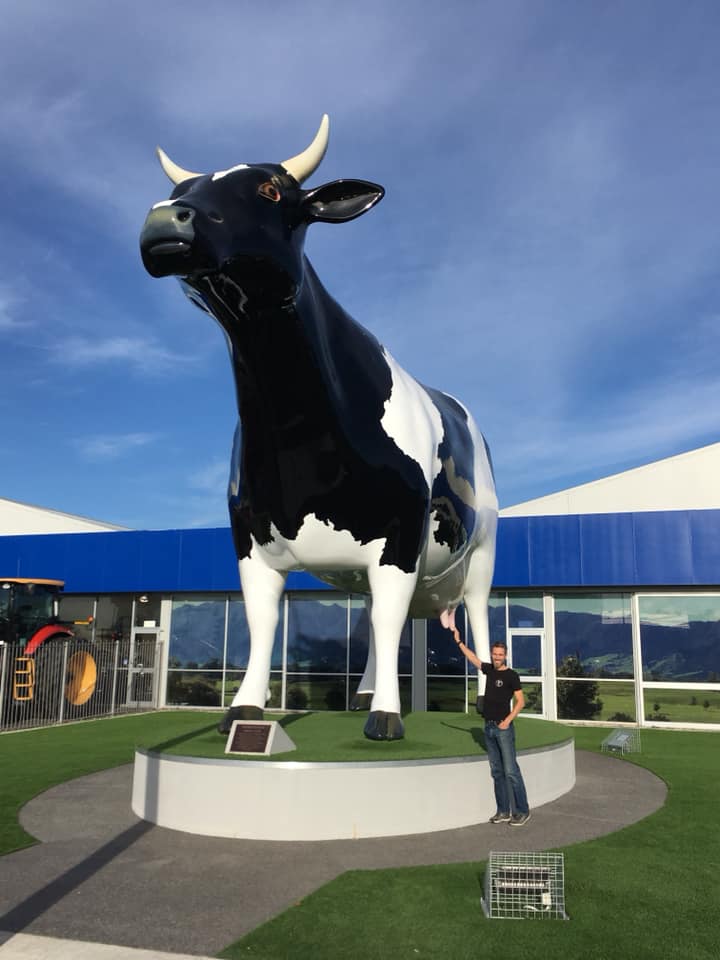Dairy for life?
 Brad Dixon
September 15, 2019
Brad Dixon
September 15, 2019
Pristine freshwater lakes and rivers are the jewel in our countries crown, the backbone of our ability to portray an authentic clean, healthy, vibrant image to the world. This image is worth billions to our tourist and export trade. People want to visit this paradise, and consume food products from the same paradise. Many people in NZ have reported that clean, healthy waterways are their no. 1 concern for these reasons.
NZ is changing in ways that DO NOT align with our freshwater ideals. Since 1994 the number of dairy cattle has increased by 70%. This has had a negative effect on our waterways. Increased cow numbers means more irrigated land. Some beautiful landscapes rich in dry land plants and animals (Mackenzie Country and Canterbury plains) are unsuitable for dairy conversion and require large scale irrigation. There are many studies linking nitrogen in drinking water to health issues like thyroid disease, inflammatory bowel disease, and neural tube defects.*Canterbury had the worlds highest incidence of Crohn's disease in 2006. A recent study looked at 20 years of data for 2.7 million people and showed there is an increased risk of illnesses with levels of nitrates that are even LOWER than the national rules currently. Canterbury has major issues with nitrates and with 1.3 million dairy cows farmed on unsuitable land could be a contributing factor. Many places with arid temperatures (set to worsen with climate change) are seeing troubling changes - in Otago rivers are drying up more frequently, and in the Hawkes bay ground water levels are shrinking.
- 76% of native freshwater fish are at risk of extinction
- 82% of waterways on farmland is unsafe for swimming
- Ground water failed standards is at 59% on farms due to E. coli and 13% due to nitrates.
- Over 200 wetlands have been drained in the last 20 years, and another 700 have been partially destroyed.
As a physiotherapist, coach, and writer experimenting with daily habits that align with expansive wellness I have come to understand that EVERYTHING is connected. We can not have a conversation about individual health without it matching the health of our ecosystem. The 2018 IPCC (Intergovernmental Panel for Climate Change) report calls for DRASTIC CHANGE in the way we produce food to move towards better individual health, reduction in water use, GHG emissions, and environmental stewardship. Dairy doesn't fit well with any of these aspects. I understand that dairy is interwoven with our cultural identity, and our economy relies heavily on the income it provides. Surely we need to start changing the way this country produces food for the world so we don't destroy our environment at the expense of the export dollar. Killing the golden environmental goose that provides long term gold is a crime against wisdom. I know change is hard but intensive dairying is a sunset industry for many reasons - It's NOT a health food, it requires an extensive amount of water and fertiliser use, the effect on our waterways is detrimental; and there are uncomfortable animal rights issues.
NZ dairy farmers are some of the hardest working, kindest, most adaptable people in the country. . They deserve pathways to diversify so they can stay ahead of the economic/environmental/climate change/animal ethics curve ball that will be thrown at them over the coming years. Dairy is a national identity underpinning our largest company, but the Fonterra tag line "Dairy for Life" leaves a sour taste in the mouth "That's the way it's always been done" is one of the most dangerous phrases in terms of progression. Our fantastic farming community need better recommendations from outside the industry that relies so heavily on the status quo with minor tweaks.
*Gearry, Richard B., et al. "High incidence of Crohn's disease in Canterbury, NZ: results of an Epidemiological Study" Inflammatory Bowel Diseases, vol. 12, no. 10, 2006, pp. 936-943.
^ https://www.caixinglobal.com/2018-12-21/dairy-plays-catch-up-in-china-101362152.html
Brad Dixon is a sports physio, coach, and wellness evangelist based at EVERFIT Physio & Coaching. His passion is promoting enhancing daily habits that nudge people towards potential and save the planet. His book ‘Holistic Human’ is available here - https://everfit.co.nz/Store/Category/Book . The power is in our daily habits! Connect with Brad at www.everfit.co.nz, Facebook, Strava, Instagram (@everfitcoach), and YOU TUBE https://youtube.com/c/EverFITcoach

The elephant in the room
.jpg?version=8)